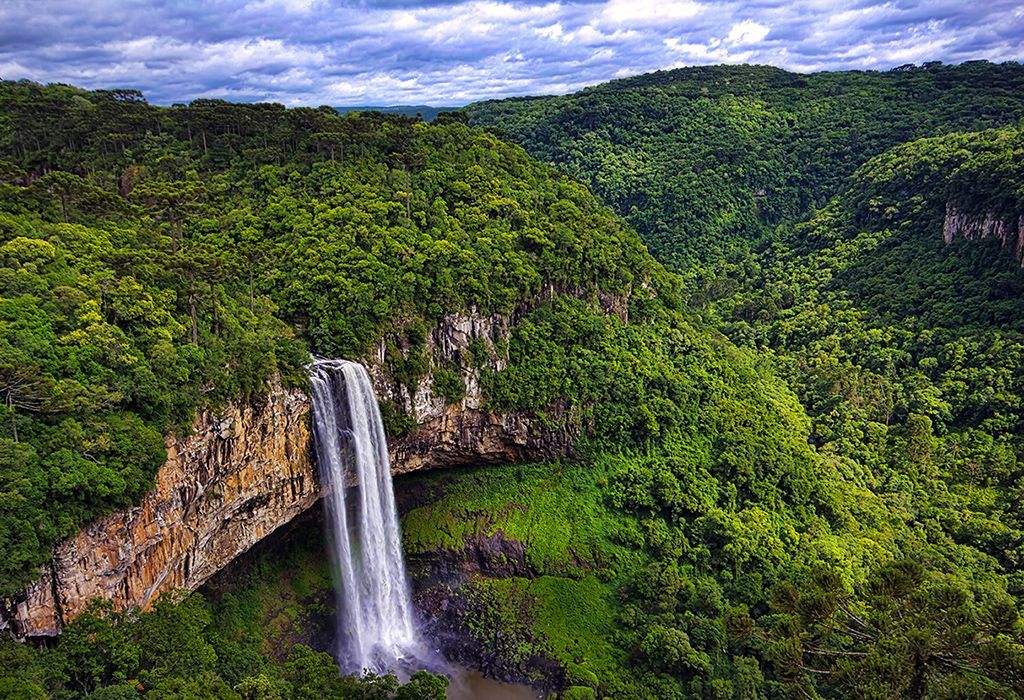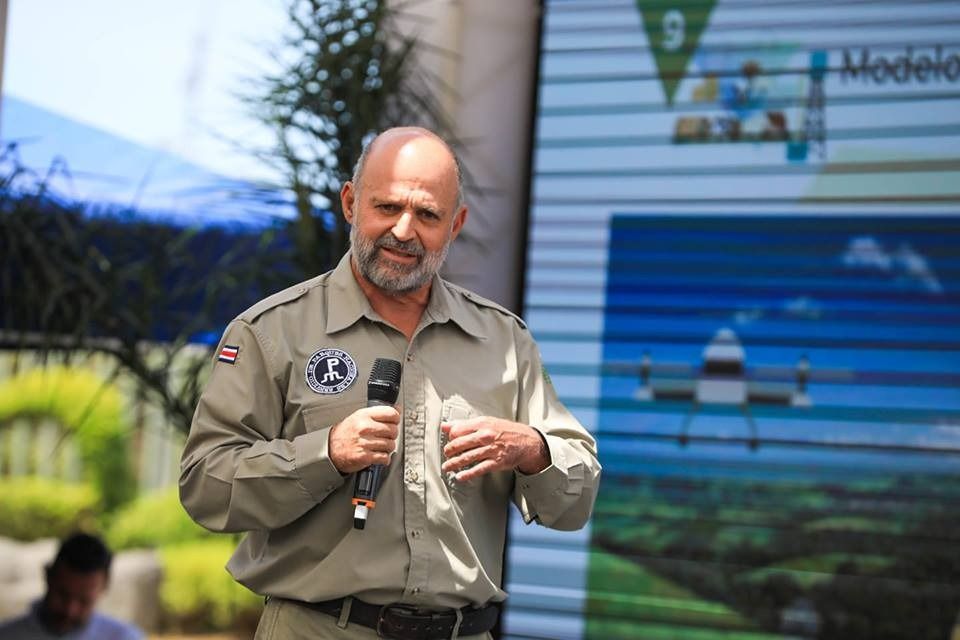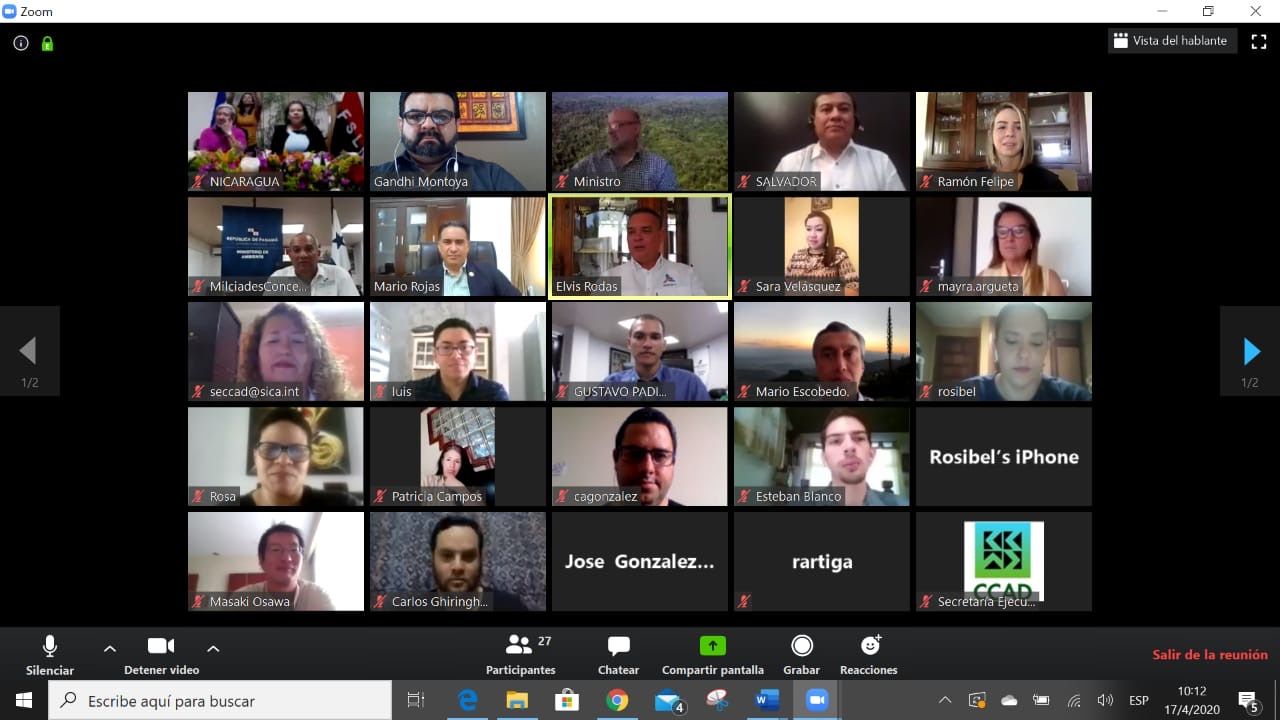Carlos Manuel Rodríguez, Costa Rica’s Minister of Environment and Energy, calls for international cooperation and development partners.
On April 17, 2020, the Council of Ministers of the Central American Commission on Environment and Development (CCAD) deliberated on the problems generated by the COVID19 pandemic and its impact on the implementation of environmental and climate change plans and programmes in all countries of the region. During this session, all the ministers fully considered that, in view of the new scenarios for the global and national order, it is vital to resume or rethink their activities and to achieve this, regional coordination and the support of multilateral and regional organisations and international cooperation partners will be required.
In the declaration signed by the ministers, they call for international cooperation and development partners to promote programmes and initiatives to support green jobs throughout the region as a key factor for the countries' economic reactivation in a sustainable manner.
The following is an extract from an interview with Carlos Manuel Rodríguez, Minister of Environment and Energy of Costa Rica:
As of today, it is the Minister of Honduras who holds the Pro-Tempore Presidency in CCAD. We talked and both agreed on the need to convene an informal virtual session with the Ministers of Environment of Central America and the Dominican Republic, to discuss the challenges and tasks that we should develop in the regional agenda with respect to the COVID19 pandemic.
In this session, we basically addressed three issues:
First, we focused on finding ways to make an adjustment so that the projects that are being implemented and those that we have in negotiations at the regional level can be strengthened and adjusted. Because we need to rethink objectives so that Central American nature can be more resilient in the face of climate change and future pandemics.
We know that there is a direct correlation between activities that degrade the environment and diseases that are transmitted from nature, in other words, via wildlife. We know that this relationship, when understood, has to generate political actions to minimise the degradation of the environment, as this is the medium through which these viruses are transmitted from the wild to humans.
This case of COVID19 is no exception. It has happened several times in the past. The case of Ebola, avian influenza and other diseases are product of the mismanagement of nature in general terms. This is directly related to the mismanagement of wildlife consumption and directly associated with deforestation. For this reason, we need to review the projects we have underway and the proposals for projects we have at the regional level so that we can be more resilient to these pandemics.
This pandemic demands our attention in the sense that it makes us see how fragile we humans are in the face of global events, in this case a pandemic. But if we look at the impacts that this pandemic is having, and we measure and compare it against what may be the irreversible impacts of climate change, then we will realise that we are tremendously vulnerable.
Therefore, the projects we have in adaptation and mitigation, nature conservation, food security, water security, must have a vision that fits with this new reality we are facing.
The second topic of this meeting was the impact this is having not only on societies or on the finances of the governments of Central American countries, but also on the operation of the environmental ministries. In Costa Rica, for example, we have closed the borders; this means that no tourists enter. About 2 million national and international tourists visit protected areas, generating a significant amount of financial resources that are reinvested in the budget for the management of protected wildlands. Without tourism, we are going to have a serious budget problem and with it a high impact on the protected areas.
Finally, we agreed on the need to have a declaration that will reflect the need we have to strengthen regional efforts for nature conservation and to accelerate processes for moving towards a new normality.
COVID 19 has shown that the economic model of our countries, our consumption and production systems, are generating a strong and negative environmental impact. And that environmental impact is generating a high social and economic cost.
In that regard, in the spirit of the best of Central Americanism, we made a declaration that reinforces the region's commitments to protect and use nature as an element of economic and social development, and to make the political decision-makers of our countries and international cooperation aware that in economic recovery plans, once the pandemic passes or is brought under control, it will be essential to have a line of investment for the conservation of nature, since nature is our life insurance.
Lessons we are learning from the COVID19 crisis
There are several positive and interesting lessons that we need to rescue. One is that we have all understood how fragile and vulnerable we are as a species, as a civilisation, as societies. In a matter of two months, an event that happened in a distant country affected us across the globe. Moreover, during this economic standstill with generalised quarantines where people do not go out and cannot carry out any ordinary activity, we have seen the capacity for restoration and recovery that nature has. Reports rapidly came in from all over the planet where we see water quality improving or air quality improving; wildlife is regaining space. Nature can recover very quickly and that is important to note. Thirdly, and equally important as a lesson: this economic model based on irrational consumption and production systems that aspire to indefinite and unlimited growth at the expense of nature cannot be part of the new normality.
The key now is to accelerate the processes of transformation, particularly the plans for decarbonisation. On the one hand, countries must make progress on their climate commitments and aspirations, and these climate aspirations must be translated into concrete plans for decarbonisation. On the other hand, we have the issue of forest protection, stopping deforestation is fundamental. Central America has lost 25% of its forests in the last 20 years, even though we have regional agreements and a regional structure of ministers, plus projects and international cooperation, we have lost 25% of our forests.
This is worrying, and the trend is to continue losing forest. We now have only five small great natural areas left to protect in Central America, and as I said before, nature is our life insurance, and stopping deforestation must be an immediate action.
Central America must move forward on the transition to renewable energy sources and it has to move very strongly towards the transition of transport systems that are not based on fossil fuels but on renewable sources. These issues are all contained in the declaration, but the challenge now is to move from aspirations to deeds.
International cooperation, a strategic support arm
The European Union is definitely our greatest strategic partner. Without this support it would be very difficult for our countries to move forward, especially on this road to decarbonisation and to mobilise ourselves towards a goal of sustainability.
It is a political aspiration that unfortunately has not become a reality. We really must make an effort within the framework of our countries' public policy and move towards an economic model that is different. The truth is that we have very complex conditions of governance or lack of governance, transparency and accountability, and respect for human rights; in addition, we have very weak environmental institutional framework.

The reality is that the ministries in Latin America are very weak and most of the public investment goes towards activities that generate high environmental impacts such as mining, hydrocarbons, infrastructure or agriculture, which is responsible for 80% of the deforestation on the planet.
However, there is nothing to invent. We are clear about where we must move towards this new paradigm of sustainability, towards this new circular economic model where the aim is to optimise resources whereby the system of consumption and production does not generate an environmental deficit.
We have nothing to rethink. The goals are clearly determined at national and international levels. We must make progress on that implementation and it is at this point that a programme such as EUROCLIMA+ seems to me to be very important because international cooperation must understand that climate objectives - mitigation as well as adaptation - are going to be achieved on a larger scale if this Programme, for example, helps to improve public policy, generates more coherence in public investment policy, and helps us to link up with the issue of the fragility of environmental institutions.
Those elements of responsibility that governments must resolve are important, and it is important that they be understood by international cooperation so that projects, programmes and cooperation in general can have a stronger impact on those changes that we require to move forward more quickly in these transitions that are more urgent today.

